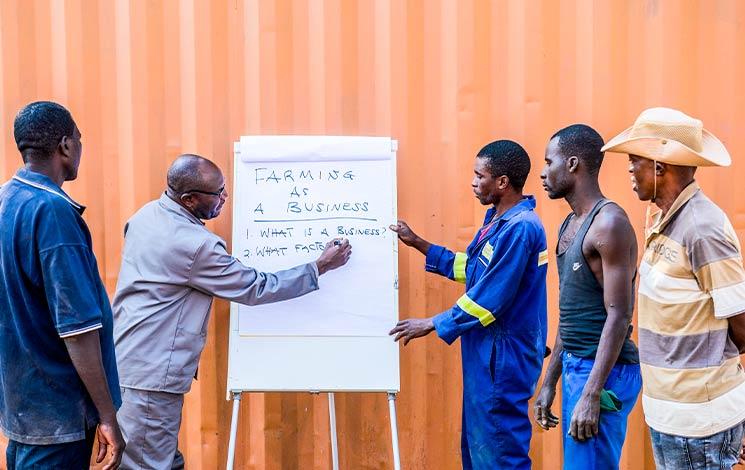


Amatheon is committed to improving and protecting critical natural resources and operates using sound environmental practices – all of which are vital to the sustainability of agricultural businesses. Prior to any developments taking place, Amatheon hires external environmental experts to conduct in-depth Environmental Impact Assessments (EIA). These assessments include desk research, site visits, public consultations, scientific studies and are bound to the approval of the respective country’s national environmental management authority. As part of the EIA, an Environmental Management Plan is developed to mitigate any risks through monitoring key indicators such as water, soil, air and noise. In each of Amatheon’s operations, the Management is responsible for the company’s environmental compliance and all employees are obliged to adhere to our Environmental Policy.
Amatheon strives to protect the soil and biodiversity, uses low-tillage cultivation methods, protects water sources with appropriate signage, and measures the company’s environmental impact using indicators such as water, soil, air and noise levels. As part of Amatheon’s commercial business strategy, the company started the incremental adaption of organic farming techniques on its farms, to improve soil fertility by maintaining and building a fertile living soil as well as improving the water quality.
Within the Outgrower Programme, Amatheon partners with NGOs to teach Conservation Farming methods and organic cropping principles to smallholder farmer, including crop rotation, green manures and compost, biological pest control, and mechanical cultivation. Conservation Farming aims to replace the Slash-and-Burn farming approach which is still widely used among rural areas in Sub-Saharan Africa. Training smallholding farmers helps to protect the soil’s organic matter and water holding capacity, thus improving overall soil structure and fertility. Thousands of farmers have been trained to date, contributing to climate change resilience and sustainable rural livelihoods



Growing Value.